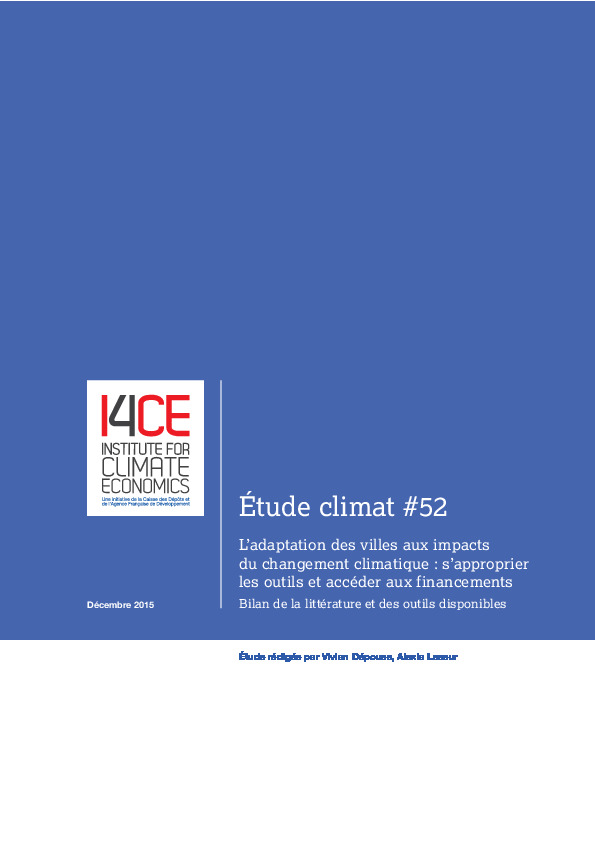The adaptation of cities to climate change
Cities and urban areas are particularly affected because of their geographical location and the large share of the population and economic activities they bring together.
This Climate Report provides a synthetic and problematized review of the literature on climate change adaptation at the urban scale, the tools and resources available to cities to implement strategies and adaptation actions. It is primarily intended for local officials in francophone cities.
It provides a checkpoint of current dynamics, questions the real ownership of these resources by local stakeholders and identifies the openings for:
– monitoring and evaluation adaptation to climate change;
– Understand and use economic analysis as a help to the decision;
– Access to funding to implement adaptation actions.
This overview of the literature provides elements to understand how cities take ownership of the tools to design, select, monitor and evaluate adaptation projects. It highlights a mismatch between the maturity of the tools inventory and of the guidance available and the actual demand of cities. Except in a few well documented pioneers cases, the process of appropriation of adaptation issues is still at a relatively upstream stage.

